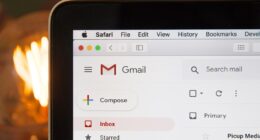There are a number of paid advertising platforms that musicians and record labels can use to reach their target audience when promoting their music. Reaching particular music fans is made easy with Facebook Ads, a well-liked option that offers highly targeted advertising based on demographics, interests, and behaviors. Similar targeting options are available with Facebook’s Instagram Ads, which are especially effective because of their visual format, which makes eye-catching promotional content possible. Google Ads is an additional effective tool for promoting music, as it allows labels and artists to make text and display ads that show up on websites in the Google Display Network as well as in search results.
Key Takeaways
- Paid advertising platforms for music promotion include Facebook Ads, Instagram Ads, YouTube Ads, Spotify Ads, and Google Ads.
- Targeted ad campaigns for music marketing should focus on specific demographics, interests, and behaviors of the target audience.
- Social media advertising for music promotion can be effective on platforms like Facebook, Instagram, Twitter, and TikTok.
- Budgeting and allocating funds for paid advertising in music promotion requires careful consideration of the target audience and advertising goals.
- Tracking and analyzing the effectiveness of paid advertising in music marketing is essential for optimizing future campaigns and maximizing ROI.
- Leveraging influencer and affiliate marketing for music promotion can help reach new audiences and build credibility.
- Integrating paid advertising with organic strategies for comprehensive music promotion can create a well-rounded marketing approach.
Utilizing this platform to connect with prospective fans who are actively seeking out music or consuming content about music is beneficial. As the second-largest search engine in the world, YouTube Ads provide a means of reaching a large audience through video advertising. To effectively promote music to the right audience, one must comprehend the special qualities and functionalities of these various paid advertising platforms.
Offering unique benefits, each platform can be customized to target audiences and particular promotional strategies. Establishing Specific Goals and the Aim for the Consumer. For example, if the objective is to boost the number of streams and downloads of a new single, the advertising campaign should be designed to target music fans who are probably going to be interested in the particular genre or artist. This is possible by using specific targeting options like age, location, interests, and even certain behaviors related to music. Making Powerful Advertising Creative.
Ad campaigns must use creative that appeals to the target audience in order to be successful. This entails employing eye-catching images, films, and ad language that effectively convey the spirit of the song and motivate viewers to act. Further useful information about what appeals to the audience most can be gained by A/B testing various ad creatives & messaging. maximizing the impact of advertising campaigns through optimization. Through ongoing optimization of advertising campaigns grounded in performance data, record labels and artists can optimize the results of their sponsored promotional endeavors.
A thorough understanding of the target market and a calculated approach to delivering the right message to the right people at the right time are essential for developing targeted advertising campaigns. Due to its capacity to connect with and engage highly specific audiences, social media advertising has emerged as a key component of music marketing. Many advertising tools are available on social media platforms like Facebook and Instagram, enabling labels and artists to design customized campaigns that appeal to music lovers. Promoting music to prospective fans who are most likely to interact with it is made possible by advertisers using advanced targeting options that allow them to reach users based on their demographics, interests, and behaviors. Social media advertising offers a variety of ad formats, including photo, video, carousel, and story ads, in addition to targeting capabilities.
This permits artistic freedom in presenting music content & drawing users’ attention while they peruse their feeds. Also, likes, comments, shares, and direct messages are among the engagement opportunities that social media advertising offers, facilitating direct communication between artists & their audience. Through the use of social media advertising for music promotion, record labels and artists can take advantage of these platforms’ power to reach a wider audience, develop a following, and encourage meaningful interactions with their music. Planning ahead & distributing money wisely is essential to optimizing the return on investment from paid advertising in the music industry.
The first stage in creating an efficient budget is defining a precise spending limit based on marketing objectives and available resources. A defined budget aids in decision-making regarding the best places and ways to spend advertising dollars, whether the goal is to promote a new album release, increase single streams, or expand a fan base. Funds should be distributed among various advertising platforms according to how well they connect with the target audience once a budget has been set. For instance, it might be advantageous to devote a bigger percentage of the budget to Facebook Ads if they have demonstrated success in increasing engagement with musical content.
To find out which ad formats & platforms work best, it’s crucial to test a variety of options. Artists and labels can maximize the impact of their advertising spend by closely observing performance metrics and modifying budget allocations accordingly. To determine the return on investment and make wise decisions about future advertising campaigns, it is critical to monitor and evaluate the performance of paid advertising in music marketing.
Tracking important performance metrics like clicks, conversions, & engagement is possible with the help of tracking tools like Facebook Pixel, Google Analytics, and UTM parameters. Artists and labels can track these metrics to learn which ad campaigns are most effective and modify their strategies accordingly. Also, studying performance data offers insightful information about the preferences and behavior of the audience. Knowing which ad creatives are working best, which platforms are generating the most engagement, and which demographics are responding to the advertising content are all part of this.
Through the utilization of this data, labels and artists can enhance their targeting tactics, maximize the effectiveness of their advertising creatives, and more efficiently allocate funds for upcoming campaigns. In order to continuously improve and hone advertising strategies, tracking and evaluating the success of paid advertising in music marketing is a continuous process. Discovering New Fan Bases through Influencer Marketing. Influencer marketing is collaborating with content producers or social media influencers who are well-known & powerful in a particular market or sector. Artists & labels can gain access to new fan bases and capitalize on the credibility and trust influencers have developed with their followers by working together to endorse music content to their audience. Affiliate Marketing: Connecting with Active Audiences.
Another effective method of promoting music is affiliate marketing, in which record labels or artists collaborate with online publications, playlist curators, or music bloggers as affiliates to promote their music in exchange for a commission or other benefits. Reaching audiences who are already interested in music-related content & are probably open to hearing about new music recommendations is made possible by this. Increasing Genuineness and Reach. Artists & labels can reach a wider audience and establish more genuine & meaningful connections with their audiences by utilizing influencer & affiliate marketing strategies in addition to traditional advertising channels. Complete music promotion requires integrating paid advertising with organic strategies, even though it’s a powerful tool for reaching new audiences & increasing engagement with music content.
In order to maintain a strong online presence and develop enduring relationships with fans, organic strategies like email marketing, social media management, content marketing, and search engine optimization are essential. Artists and labels can develop a unified marketing strategy that highlights both paid reach and organic engagement by combining paid advertising with organic tactics. For instance, posting organic content on social media that shares personal anecdotes about the song or offers behind-the-scenes glimpses into the video’s creation can be a nice addition to paid advertising promoting a new music video. This builds stronger ties with fans and tells a more comprehensive story about the music’s content.
Also, by fostering current connections and encouraging direct interaction, email marketing—which is used to inform fans about impending releases or tour dates—can support paid advertising initiatives. An all-encompassing strategy for music promotion that takes into account both building new audiences & fostering existing fan bases is ensured by combining paid advertising with organic tactics. In conclusion, it is critical to comprehend the various paid advertising platforms for music promotion in order to effectively reach target audiences. One can meaningfully interact with potential fans by developing audience-resonant targeted ad campaigns and making use of social media advertising. Strategic budgeting and fund allocation guarantees that advertising efforts are maximized in effect.
Advertising strategies can be improved by keeping track of and evaluating the performance of paid advertising. Reaching new audiences and fostering existing fan bases are just two of the ways that using influencer and affiliate marketing broadens the reach of music promotion. Paid advertising should also be integrated with organic campaigns to ensure a holistic approach.
FAQs
What is paid advertising for music promotion?
Paid advertising for music promotion is a marketing strategy where musicians or music labels pay to have their music or brand promoted through various advertising channels such as social media, search engines, music streaming platforms, and other online platforms.
How does paid advertising help in music promotion?
Paid advertising helps in music promotion by increasing the visibility of the music and reaching a larger audience. It can help in gaining new fans, increasing streams and downloads, and ultimately boosting the overall exposure and success of the music.
What are the common platforms for paid advertising in music promotion?
Common platforms for paid advertising in music promotion include social media platforms like Facebook, Instagram, and Twitter, as well as music streaming platforms like Spotify, Apple Music, and YouTube. Additionally, search engine advertising through Google Ads is also a popular choice.
What are the key factors to consider when using paid advertising for music promotion?
Key factors to consider when using paid advertising for music promotion include defining the target audience, setting clear goals and objectives, creating compelling ad content, and monitoring and analyzing the performance of the ads to optimize the campaign.
What are the potential benefits of using paid advertising for music promotion?
The potential benefits of using paid advertising for music promotion include increased visibility and reach, targeted audience engagement, potential for viral growth, and the ability to track and measure the effectiveness of the advertising campaign.









